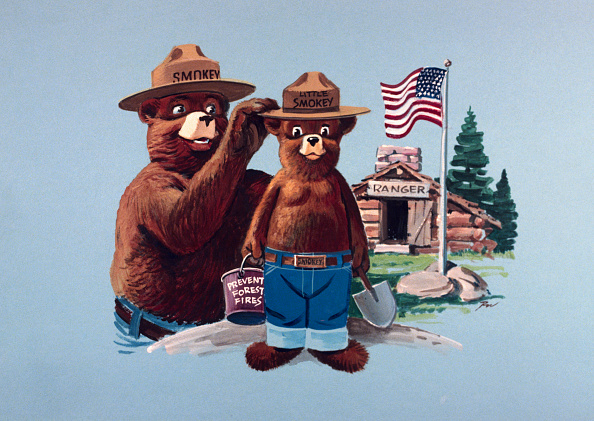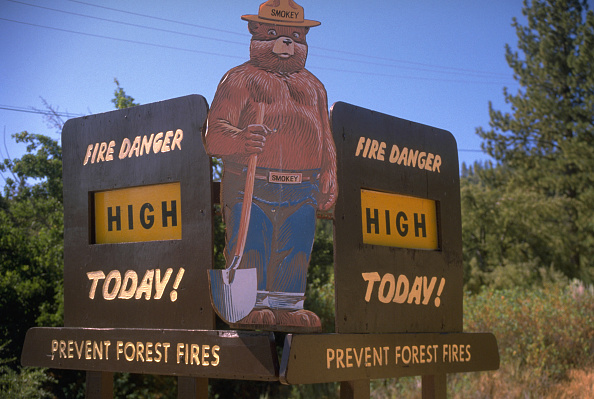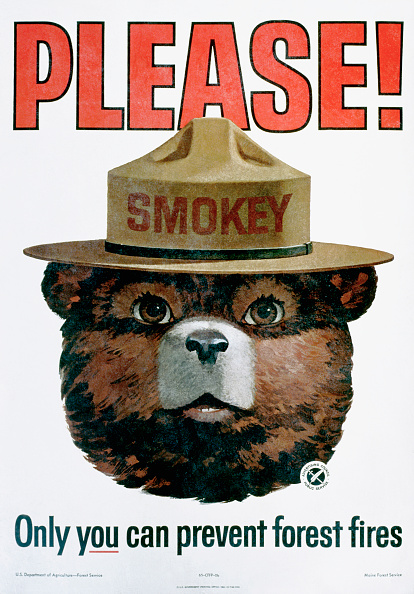(USA TODAY) — He's an American icon on par with Mickey Mouse and Batman. He's been in comic books, and on milk cartons and TV ads. But he's only uttered five words in his life: "Only you can prevent wildfires."

Well, maybe six words. Smokey Bear, who's turning a whopping 70 years old Aug. 9, began his career in 1944 with the slogan, "Only you can prevent forest fires." But other than that, the changing times have done little to change this symbol of fire safety.
"Smokey's message of personal empowerment of people in that they can play a role in saving forest is very consistent," said Peggy Conlon, the president and CEO of the Ad Council. "He has been around for generations, everyone knows and loves him."
Smokey Bear is the face of the longest-running public service campaign in the U.S. Smokey was created in 1944 by the U.S. Forest Service, the National Association of State Foresters and the Ad Council in response to public fears that enemy shelling during World War II would cause forest fires in the West while all the firefighters were overseas.

"Forest fires are nothing new in this country," said Thomas Tidwell, chief of the U.S. Forest Service in the Department of Agriculture. "Even back in the 1930s and 1940s, we actually had more (forest fires) in the landscape than we did today."
With the current drought in California and the increase in lightning-induced wildfires, it's easy to forget that the majority of wildfires are started by humans, Tidwell said. Nine out of 10 forest fires are started by people — either by leaving a campfire lit, throwing away matches or even using machinery in arid areas.
"When you have a prolonged drought, it creates conditions that any ignition can start a fire," Tidwell said. "When conditions get that dry, you see sparks off equipment, and there's more of a likelihood to start a fire and it's harder to suppress that fire."
But even with drier conditions this year, and more people living near forests, the amount of wildfires has greatly decreased since Smokey was first created. The loss of forest to wildfires has been reduced from 22 million acres in 1944 to about 6.7 million acres annually today, Conlon said.
"That's a huge reduction," Conlon said. "We want to keep educating new generations."
Smokey's appeal was originally targeted toward children with his friendly teddy bear image and his appearance in comic strips, Conlon said. His popularity among kids grew so strong that he even got a flesh-and-blood mascot in the 1950s, when a bear cub was rescued from a wildfire in New Mexico and sent to live as Smokey at the National Zoo in D.C. By 1952, Smokey even had his own zip code to accommodate all his fan letters. Today, Smokey has his own website and social media presence.
The Ad Council indicates that 96% of Americans today recognize Smokey and his message, Tidwell said.
Smokey's voice has changed over the years, and has been recorded mostly by various radio hosts. Most recently, he was voiced by actor Sam Elliott, who has made a living playing gruff cowboys with his characteristic deep Western drawl in movies like The Big Lebowski and Tombstone.
